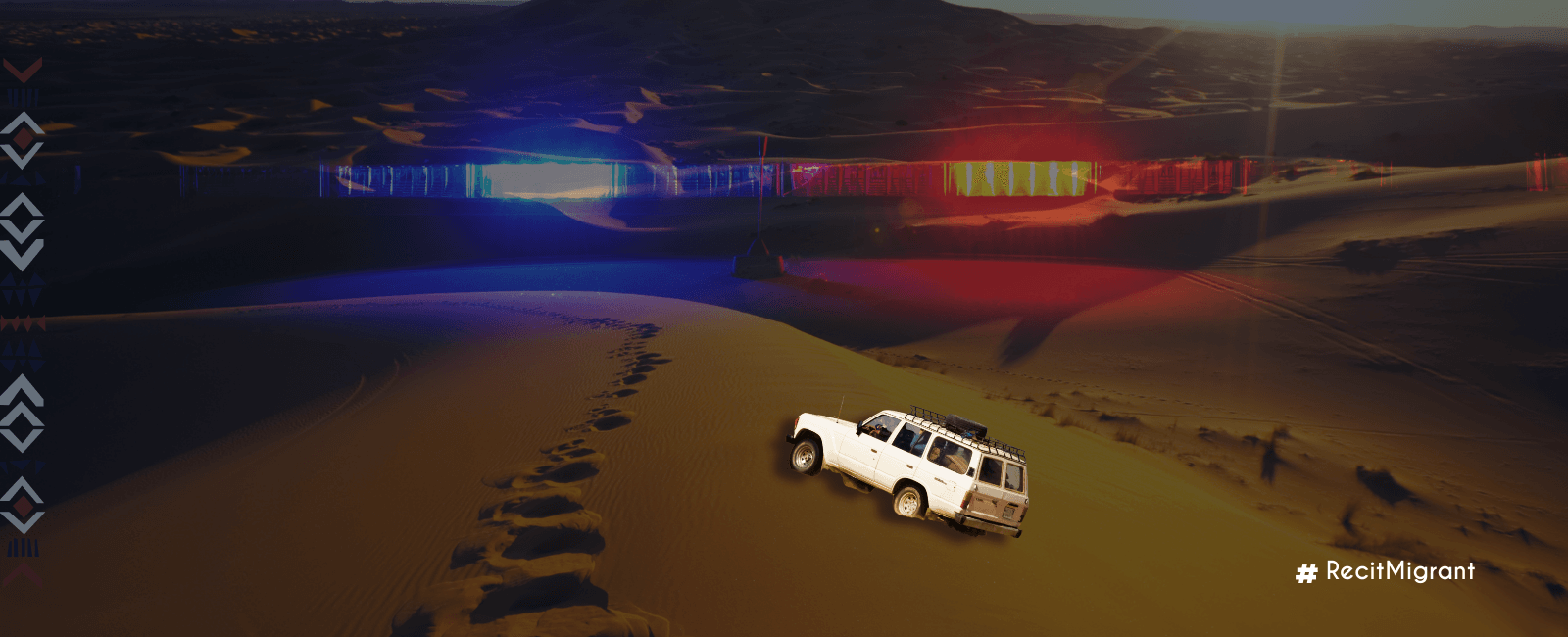

The Sahara desert, vast and unforgiving, is far more than just a desert: it is the scene of poignant stories where courage and danger are intertwined. Crossing this vast terrain, thousands of migrants risk their lives in the face of unrelenting insecurity and overwhelming challenges. But in the midst of these ordeals, initiatives are emerging to bring help and hope. Find out how the NGO Alarm Phone Sahara, working alongside the armed forces and civil society, is striving to make these perilous journeys safer while navigating the complexities of an evolving legal landscape in Niger.
Convoys to help counter desert dangers
The desert roads are often hotbeds for violence and accidents. In this harsh environment, organised convoys have become an essential means of limiting the risks faced by migrants. According to Chefou Azizou, the coordinator of the Alarm Phone Sahara, this initiative is currently the most effective way to ensure a basic level of safety. “Drivers who cross the desert alone and without support are at high risk,” he explains.
The consequences of traveling alone can be especially severe when help is not readily available. However, Chefou notes a positive development: “recently, military teams have intervened to rescue migrants in distress and lead them to safe areas.” For Alarm Phone Sahara, whose mission is to respond to emergency calls, these actions are considered a step in the right direction. When the army gets involved at this level, it deserves recognition,” says Chefou.
The military’s involvement in rescuing migrants marks a turning point, as it complements the efforts of NGOs and the civil society, who are often on the frontlines. Though limited in scope, these coordinated efforts enhance safety in a region plagued by countless challenges.
Impact of repealed law 2015-36 on departures to the Maghreb
The repeal of Law 2015-36 in 2023 by the new authorities who came to power in July 2023 had unexpected repercussions. Alarm Phone Sahara responded by raising awareness among drivers, migrants and smugglers about the new legal landscape. “We organised meetings to inform the relevant actors. We encourage them to follow the official routes and use the recognised bus stations, such as those in Agadez or Dirkou,” Chefou Azizou emphasizes.
These legal changes have altered behaviour patterns. The NGO’s toll-free emergency number, once widely used for distress calls and travel information, is now being used less frequently. According to Chefou, this decline may be due to fewer departures or a shift to more remote routes. While these new practices reduce the visibility of convoys, they also increase the risks associated with insecurity and banditry.
According to Chefou, this decline may be due to fewer departures or a shift to more remote routes. While these new practices reduce the visibility of convoys, they also increase the risks associated with insecurity and banditry.
Migration system related challenges
Migration across the Sahara is fraught with uncertainty and danger. In addition to security concerns, migrants face extreme weather conditions, lack of resources and disorientation in the desert. These often overlooked hardships increase the risk of human loss.
Alarm Phone Sahara plays a crucial role in assisting migrants. By distributing emergency contact cards and running awareness campaigns, the NGO aims to minimise the risks and encourage the use of official routes. The overall aim is to provide essential information and remind all concerned of the importance of safety.
However, the coordinator stresses that solo travel remains a major problem. These individual journeys, often motivated by concerns for safety or discretion, make it more difficult to locate migrants in case of emergency. This situation highlights the need for greater cooperation between authorities, NGOs and community stakeholders.
Mobilisation of migration stakeholders
Despite the challenges, joint efforts by the military, NGOs and local authorities are yielding results. Awareness-raising campaigns and emergency operations are helping to improve the safety of migrants. However, these initiatives need to be scaled up to address the full extent of the dangers.
Chefou Azizou stresses the importance of balancing military and civilian efforts. While military involvement can help secure certain areas, it must be complemented by training programmes, information campaigns and community support. This integrated approach is essential for the sustainable protection of migrants.
Complexity of migration and need for solutions
Migration in Niger – and more broadly in the Sahel – remains a complex phenomenon. Security, legal and socio-economic contexts all influence the dynamics of migration. In this ever-changing landscape, migrants are often forced to choose between limited – and often dangerous – options.
Alarm Phone Sahara continues to play a vital role. By adapting to changing realities and multiplying its initiatives, the NGO remains a key player in the protection of migrants. However, as Chefou Azizou points out, challenges remain. Current efforts, while useful, need to be backed up by collective action and innovative solutions.
The Sahara, vast and unforgiving, remains a treacherous passage for migrants. But thanks to the determination of actors such as Alarm Phone Sahara, combined with the initiatives of the authorities and civil society, progress is possible. The safety of migrants must remain a priority, because behind every journey lies a search for hope and survival.


